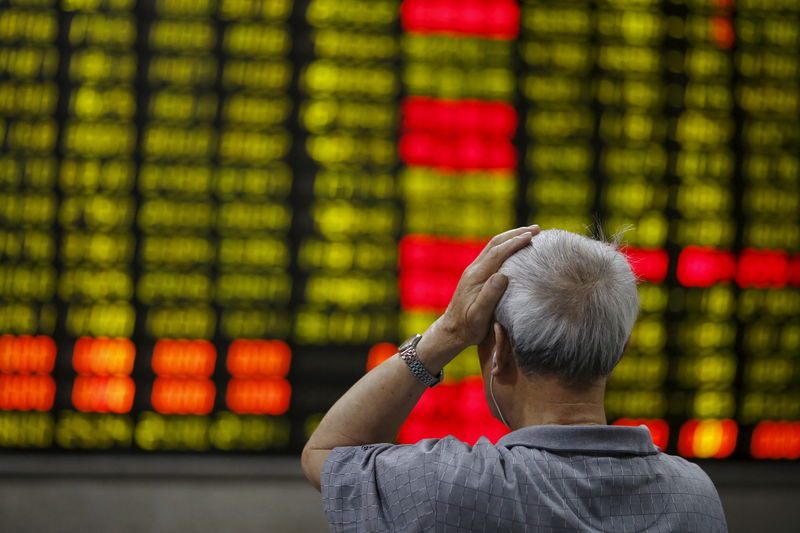This post was originally published on this site
https://i-invdn-com.investing.com/news/LYNXMPEB5F0CM_M.jpg
Investing.com – Asia Pacific stocks were mostly down on Wednesday morning, with China releasing factory-gate data and the U.S. as well as the U.K. banning on Russian oil.
China’s Shanghai Composite edged down 0.15% by 9:52 PM ET (2:52 AM GMT) and the Shenzhen Component inched down 0.07%. Data released earlier in the day showed that the consumer price index (CPI) grew 0.6% month-on-month and 0.9% year-on-year in February 2022. The producer price index grew 8.8% year-on-year.
Hong Kong’s Hang Seng Index fell 1.23%.
Japan’s Nikkei 225 was up 0.23%, with the GDP growing 1.1% quarter-on-quarter and 4.6% year-on-year in the fourth quarter of 2021.
In Australia, the ASX 200 rose 0.94% after the Westpac consumer sentiment contracted 4.2% in March.
South Korean markets were closed, with voting for the country’s next president currently underway.
The U.S. will ban imports of Russian fossil fuels, while the U.K. will prohibit Russian oil but not natural gas and coal. The moves are the latest response to the Russian invasion of Ukraine on Feb. 24 and contributed to an already-volatile commodities market.
Supply disruptions and inflationary shocks as the sanctions on resources-rich Russia could also impact economic recovery. This could add to U.S. Federal Reserve’s inflation challenge ahead of its policy decision, to be handed down in the following week.
Investors are widely expecting the Fed to hike interest rates by 25 basis points in its decision, but some expect the central bank to take a slightly less hawkish stance over 2022.
“The Fed doesn’t seem to be getting a break in terms of the inflation problem that they are trying to solve by raising these rates, so it doesn’t look likely that we’ll see a less aggressive Fed over the next year or so,” Advisors Capital Management portfolio manager JoAnne Feeney told Bloomberg.
Reserve Bank of Australia Governor Philip Lowe said an interest rate hike later in 2022 is “plausible” as Russia’s invasion creates a new supply shock. The European Central Bank will also hand down its policy decision on Thursday.
“The duration of this incursion is really going to weigh on the economics of both Europe and the U.S.,” Crossmark Global Investments chief market strategist Victoria Fernandez told Bloomberg. The firm is cautious but has been in the market trying to be “opportunistic,” she added.
On the data front, the U.S. will release its own CPI on Thursday.
Meanwhile, Coca-Cola (NYSE:KO), McDonald’s Corp. (NYSE:MCD), and Starbucks Corporation (NASDAQ:SBUX) are the latest companies to suspend operations in Russia in protest at the invasion of Ukraine. Fitch Ratings also slashed Russia’s credit rating and warned that a bond default is “imminent.”
Russia intensified its bombardment of the Ukrainian capital, Kyiv, according to the U.S. The Russian stock market extended a trading halt, attempting to slow tumbling prices as the Western sanctions start to take their toll. Although currency trading could reopen, the London Metal Exchange suspended nickel trading on Tuesday until at least Mar. 11 due to highly volatile prices.

